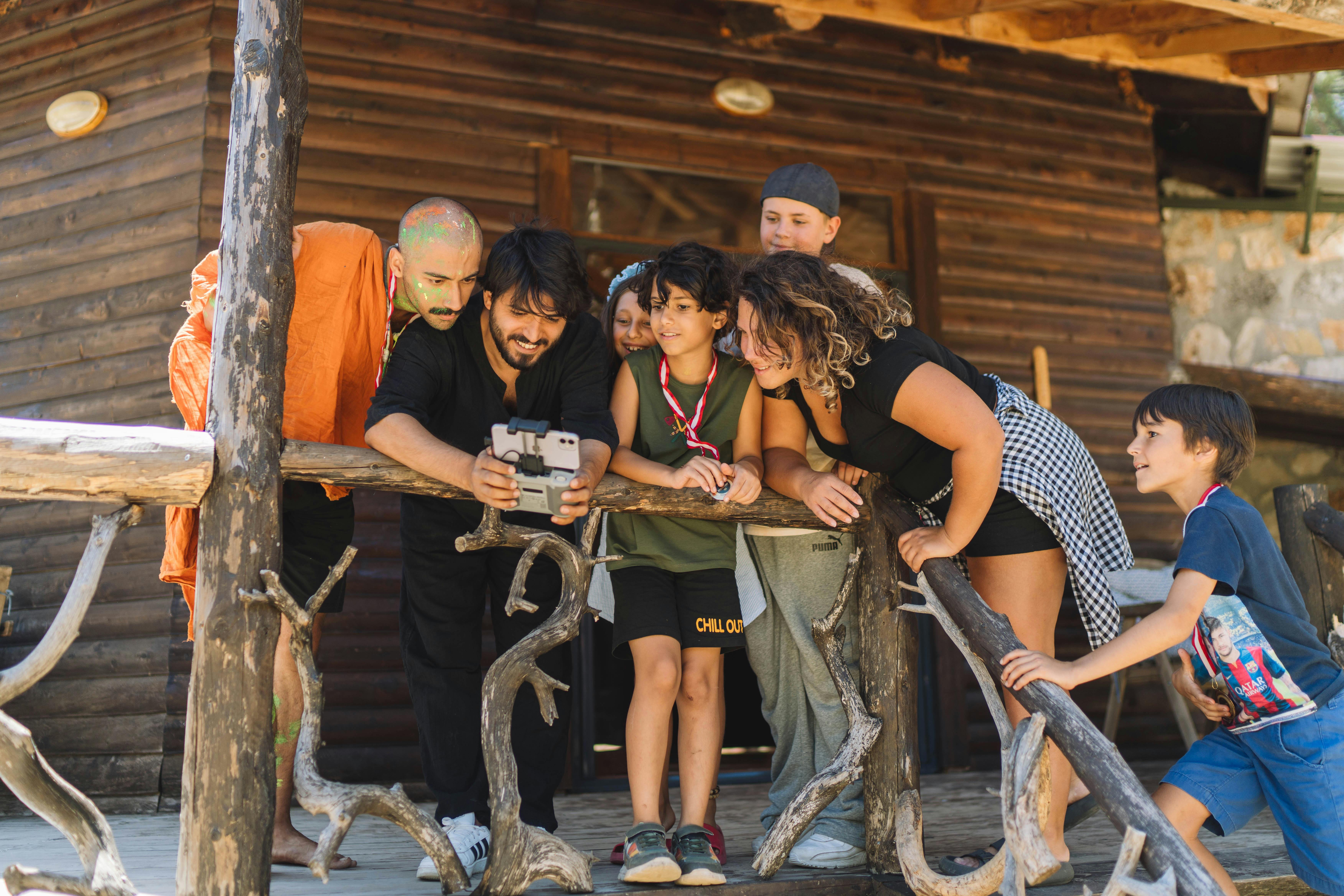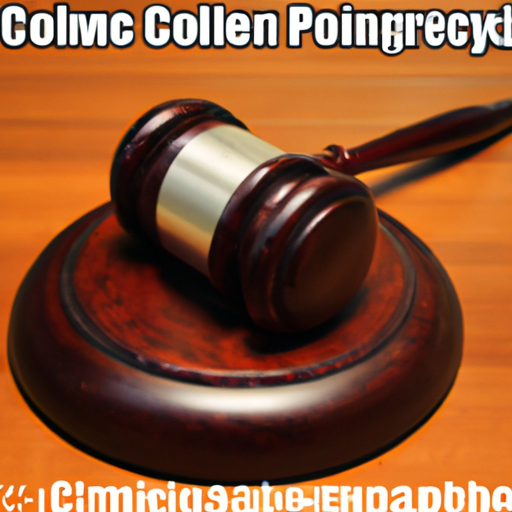In today’s digital age, the widespread use of social media platforms has led to an increase in copyright claims. As businesses and individuals continue to share and create content online, it is crucial to understand the legal implications and protections surrounding intellectual property. This article aims to provide you with a comprehensive overview of social media copyright claims, covering key concepts and important considerations. By delving into frequently asked questions and providing concise answers, you will gain clarity on this complex area of law, empowering you to protect your business interests. For expert guidance and personalized assistance, do not hesitate to contact our experienced lawyer who specializes in social media copyright claims.

Understanding Social Media Copyright
Overview of Social Media Copyright
In today’s digital age, social media has become a powerful tool for businesses and individuals alike to connect and share content. While social media platforms provide a convenient way to disseminate information, it is essential to understand the legal implications of using copyrighted materials on these platforms. This article will provide a comprehensive overview of social media copyright, including what copyright entails, the laws governing copyright on social media, the importance of copyright protection, and common copyright infringements observed on social media platforms.
What is Copyright?
Copyright is a legal protection that grants exclusive rights to the original creators of literary, artistic, and intellectual works. These works can include texts, images, videos, music, software, and more. Copyright provides the creators with the authority to control how their work is used, reproduced, distributed, displayed, and performed.
Copyright Laws and Social Media
When it comes to social media, copyright laws extend to the users’ activities on such platforms. This means that users must adhere to copyright laws when posting, sharing, and using copyrighted content on social media. Ignorance of copyright laws does not exempt individuals or businesses from legal consequences.
Importance of Copyright Protection
Copyright protection plays a vital role in maintaining the integrity of content creators’ work and incentivizing innovation. By enforcing copyright laws, businesses and individuals can safeguard their original works, maintain control over how their content is used, and prevent unauthorized use or infringement. Additionally, copyright protection can also serve as a source of revenue through licensing agreements and royalties.
Common Social Media Copyright Infringements
Posting Copyrighted Content without Permission
One of the most common copyright infringements on social media platforms is posting copyrighted content without obtaining the necessary permissions or licenses. Whether it is sharing a photograph, an article, or a video, using someone else’s copyrighted work without their consent can lead to legal trouble.
Sharing Content Without Attribution
Attribution is a crucial aspect of copyright law, especially in the digital realm. When sharing content on social media, it is essential to provide proper credit to the original creator or copyright holder. Failing to attribute the work to the rightful owner can be considered a copyright infringement.
Using Copyrighted Material for Commercial Purposes
Another common infringement occurs when individuals or businesses use copyrighted material for commercial purposes without obtaining the appropriate licenses or permissions. Commercial use refers to any activity that involves making a profit or gaining a financial advantage through the use of copyrighted content. This can include using copyrighted images in advertisements, promotional materials, or commercial videos without authorization.
Digital Millennium Copyright Act (DMCA)
Key Provisions of the DMCA
The Digital Millennium Copyright Act (DMCA) is a U.S. federal law that provides copyright protection in the digital era. It addresses several important aspects of copyright law, such as internet service provider liability, safe harbor provisions, and anti-circumvention measures. The DMCA aims to strike a balance between protecting copyright holders’ rights and fostering innovation in the digital landscape.
DMCA Takedown Notices
Under the DMCA, copyright holders can issue takedown notices to online service providers (OSPs) when they believe their copyrighted material is being used without permission. The OSP must then promptly remove or disable access to the allegedly infringing content. Takedown notices provide a mechanism for copyright holders to enforce their rights and protect their intellectual property.
Safe Harbor Protection for Online Service Providers
The DMCA also includes safe harbor provisions that protect OSPs from being held liable for copyright infringement committed by their users. To qualify for safe harbor protection, OSPs must meet certain requirements, such as implementing and maintaining a policy for terminating the accounts of repeat infringers. This provision enables OSPs to operate without constant fear of legal repercussions for their users’ actions.
Consequences of Social Media Copyright Infringement
Legal Actions and Lawsuits
When a copyright holder discovers that their work has been infringed upon on social media, they may take legal action against the infringing party. Legal actions can lead to costly lawsuits, which can result in the infringer being held liable for damages, including statutory damages and attorney fees.
Cease and Desist Letters
In some cases, copyright holders may choose to send a cease and desist letter to the infringing party before resorting to legal action. A cease and desist letter notifies the infringer of the copyright violation and demands that they cease the infringing activity. Ignoring a cease and desist letter could potentially escalate the matter to a lawsuit.
Statutory Damages and Fines
Copyright infringement can result in significant financial consequences. In the United States, copyright infringement can lead to statutory damages, which can range from hundreds to thousands of dollars per infringed work. Courts may also award actual damages and profits attributable to the infringement. Additionally, infringers may be ordered to pay the copyright holder’s attorney fees.
Negative Impact on Brand Reputation
Apart from legal consequences, social media copyright infringement can have a detrimental impact on a business’s brand reputation. When businesses are perceived as unethical in their use of copyrighted content, it can damage their credibility, trust, and long-term relationships with customers and partners.
Defending Against Social Media Copyright Claims
Fair Use Doctrine
The fair use doctrine allows limited use of copyrighted material without the need for permission from the copyright holder. Fair use is determined on a case-by-case basis and depends on several factors, such as the purpose and character of the use, the nature of the copyrighted work, the amount and substantiality of the portion used, and the effect on the potential market for the copyrighted work.
Transformative Use
Transformative use refers to using copyrighted material in a way that adds new expression, meaning, or purpose. When the new work significantly transforms the original material, it may be considered fair use. Transformative use often involves commentary, criticism, parody, or satire.
Parody and Satire
Parody and satire are forms of creative expression that often involve the use of copyrighted material. Parody uses humor to imitate or mock an original work, while satire uses humor or irony to criticize or comment on societal issues. Both parody and satire are generally protected under fair use, but the extent of protection may vary depending on the jurisdiction.
License and Permission
The most effective way to avoid copyright infringement is to obtain proper licenses or permissions from the copyright holders. This can involve contacting the copyright holder directly or utilizing licensing platforms or agencies that facilitate the legal and proper use of copyrighted material. Properly licensing content ensures compliance with copyright laws and provides peace of mind for businesses and individuals.
Steps to Protect Your Social Media Content
Registering Copyrights for Original Content
Registering your original content with the appropriate copyright office provides additional legal protection and remedies in case of copyright infringement. Although copyright protection is automatic upon creation, registering your work can strengthen your position in legal proceedings and enable you to seek statutory damages and attorney fees.
Monitoring and Reporting Copyright Infringements
Proactively monitoring social media platforms for any infringements of your copyrighted content can help you identify and address unauthorized use promptly. When infringements occur, promptly reporting them to the social media platform’s copyright enforcement mechanisms, such as filing a copyright infringement report, can initiate the process of content removal.
Implementing Proper Attribution and Permissions
To avoid copyright infringement claims, it is crucial to always provide proper attribution when using someone else’s copyrighted work. Ensure that you have the necessary permissions or licenses to use the content and clearly attribute it to the original creator or copyright holder. Implementing best practices regarding attribution and permissions demonstrates ethical conduct and respect for intellectual property rights.

Navigating Copyright Policies on Different Social Media Platforms
Copyright Policies of Facebook
Facebook has specific copyright policies in place to protect the rights of copyright holders. Users can report copyright infringements through Facebook’s reporting tools, which can lead to the removal of the infringing content. Facebook also implements automated systems to scan for potentially infringing material.
Copyright Policies of Twitter
Twitter’s copyright policies prohibit users from posting copyrighted material without the necessary authorization. Violations can result in content removal and enforcement actions, such as account suspension. Twitter provides a mechanism for copyright holders to report infringements through its copyright reporting portal.
Copyright Policies of Instagram
Instagram’s copyright policies aim to respect intellectual property rights and prohibit users from posting copyrighted material without permission. Copyright holders can submit infringement reports to Instagram, which may result in the removal of the infringing content. Instagram also provides tools for reporting copyright infringements.
Copyright Policies of YouTube
As a video-sharing platform, YouTube places significant importance on copyright protection. YouTube’s copyright policies enable copyright holders to request the removal of infringing content through its copyright infringement notification system, also known as the DMCA takedown process. Repeat offenders may face penalties, including account suspension or termination.
Copyright Policies of LinkedIn
LinkedIn’s copyright policies emphasize users’ responsibilities to respect intellectual property rights. Users are prohibited from uploading, posting, or sharing copyrighted material without authorization. LinkedIn provides a mechanism for copyright holders to report copyright infringements through its reporting tools, which can lead to the removal of infringing content.
Working with Intellectual Property Lawyers
Why Consult an Intellectual Property Lawyer?
Consulting an intellectual property lawyer can provide invaluable guidance and assistance when dealing with social media copyright issues. Lawyers who specialize in intellectual property law possess the knowledge and expertise necessary to navigate complex legal matters and protect your rights as a content creator or copyright holder.
Expertise in Copyright Law
Intellectual property lawyers possess in-depth knowledge of copyright laws and regulations, staying up to date with the latest developments in the field. They can assess your situation, provide legal advice tailored to your specific needs, and guide you through the intricacies of copyright law.
Copyright Infringement Investigations
When copyright infringement occurs on social media, an intellectual property lawyer can investigate the infringement, gather evidence, and determine the appropriate course of action. They can assist in identifying the responsible party, crafting cease and desist letters, or pursuing legal action if necessary.
Enforcement and Litigation
If your copyrighted content has been infringed upon, an intellectual property lawyer can represent you in enforcing your rights and seeking remedies. Whether it involves negotiating with the infringing party, drafting settlement agreements, or initiating litigation, a lawyer can take the necessary steps to protect your content and seek appropriate compensation.

Frequently Asked Questions (FAQs)
Can I use copyrighted material in my social media posts?
Using copyrighted material in your social media posts without obtaining the necessary permissions or licenses can potentially lead to copyright infringement. It is crucial to respect the rights of copyright holders and seek proper authorization or utilize content that is licensed under terms that permit its use.
What is fair use and how does it apply to social media?
Fair use is a legal doctrine that allows limited use of copyrighted material without permission from the copyright holder. Determining fair use requires considering various factors, such as the purpose and nature of the use, the amount used, and the effect on the market for the copyrighted work. Whether fair use applies on social media will depend on the specific circumstances of each case.
What should I do if someone infringes my social media content?
If someone infringes your social media content, you should gather evidence of the infringement, such as screenshots or links. Then, you can send a cease and desist letter to the infringing party, demanding them to stop the infringing activity. Depending on the severity of the infringement, consulting an intellectual property lawyer may be advisable for further guidance and potential legal action.
How do I file a DMCA takedown notice?
To file a DMCA takedown notice, you must submit a written notification to the designated agent of the online service provider (OSP) hosting the infringing content. The notification should include specific information, such as your contact information, a clear description of the copyrighted work, identification of the infringing material, and a statement verifying the accuracy of the information provided. Consult the OSP’s website or legal resources for detailed instructions on filing a DMCA takedown notice.
Should I consult a lawyer for every social media copyright issue?
While not every social media copyright issue may require immediate legal consultation, it is advisable to consult an intellectual property lawyer for complex or significant copyright issues. A lawyer can provide professional advice, assess the risks and potential consequences, and guide you through the appropriate legal actions to protect your rights.
Conclusion
Protecting your social media content from copyright infringement is crucial for maintaining your rights as a content creator or copyright holder and safeguarding your reputation. Understanding the laws surrounding social media copyright, common infringements, and the consequences of infringement empowers you to navigate the digital landscape responsibly. By implementing best practices, seeking legal assistance when needed, and respecting the rights of copyright holders, you can effectively protect your content and reputation. If you need legal guidance or assistance with social media copyright matters, don’t hesitate to reach out to an intellectual property lawyer with expertise in copyright law. Safeguard your content and ensure compliance with copyright regulations to thrive in the digital world.
